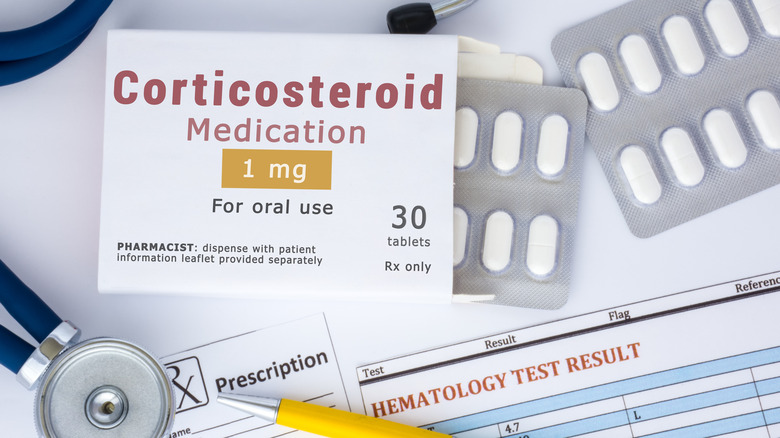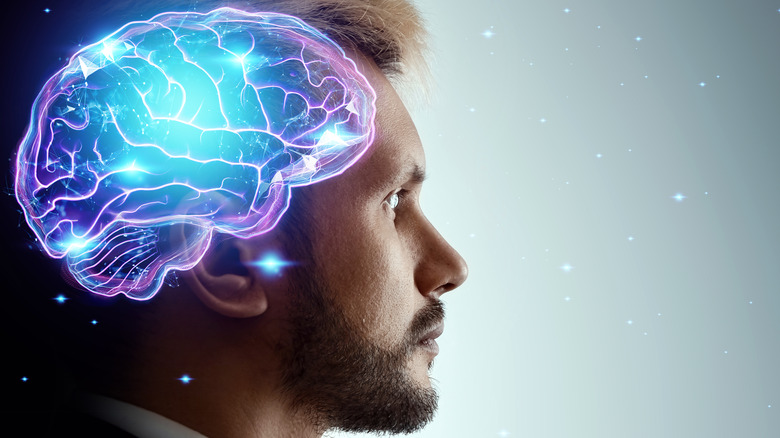This Is How Steroids Can Change Your Brain
Many people take glucocorticoids to treat a variety of conditions, such as asthma, inflammatory bowel disease, or rheumatoid arthritis, according to MedicalNewsToday. Also known as corticosteroids, glucocorticoids help the body reduce inflammation, boost immunity, and keep hormone levels in check. Taken long-term, these steroids can result in side effects, such as high blood pressure, increased appetite, and mood changes. According to a new study in BMJ Open, glucocorticoids change your brain.
The study looked at questionnaires and MRI results of more than 700 people who were prescribed glucocorticoids. Researchers compared their data with more than 24,000 other people who didn't take the drugs. The study also differentiated between participants who inhaled glucocorticoids and those who took them orally or through injection. The key finding of the study was that those who were prescribed glucocorticoids for long-term use had significantly less white matter in their brains. White matter in the brain is responsible for connecting the various signals within the brain (per MedicalNewsToday).
Changes in the brain might explain side effects
The study noted that the method of taking glucocorticoids resulted in different changes in the brain. People who had taken oral glucocorticoids or had corticosteroid injections had more gray matter in the caudate nucleus. The caudate nucleus helps execute our movement and is responsible for learning, motivation, and reward (via the StatPearls).
The study also found a slight decrease in gray matter in the brain's amygdala among those who inhaled glucocorticoids. The amygdala is the region of our brain that regulates our emotions (via Healthline). The research suggested that these changes in brain matter could explain psychological side effects, such as depression and mania. People who had been prescribed glucocorticoids in this study also complained about their mental health.
The most common types of glucocorticoids are cortisone, prednisone, triamcinolone, and budesonide (via WebMD). These types of steroids are not the same as anabolic steroids, which are performance-enhancing drugs used by some athletes (per MedicalNewsToday).


